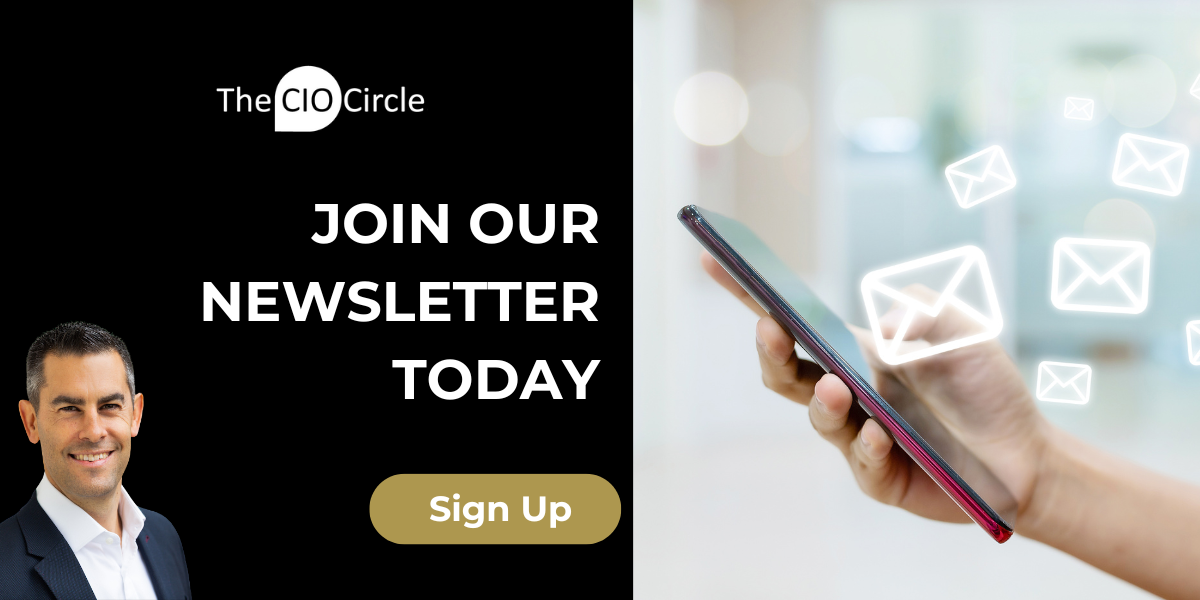JAMES FREED
Chief Digital and Information Officer at Health Education England
Can you please provide a little introduction about yourself
I work as Chief Digital and Information Officer for Health Education England where I’m responsible for describing and implementing the strategic direction for information and technology for the organization. I am passionate about digital literacy and the professionalism of Digital Health Professionals across the health and care system. I am deputy SRO for the Digital Readiness Program, a program of work intending to support all 3 million health and care staff to be able to extract value from digital, data and technology tools.
What has your journey to your position been like? What path have you taken?
I trained as a molecular biologist in cancer research for several years before making the move to process redesign and IT. I worked in hospitals in South West London for the Cancer Services Collaborative, an organization funded by the NHS Modernization Agency. I cut my teeth on national IT implementation following a move to NHS Connecting for Health where I worked as Best Practice Lead for pathology, order communications, and prevention, screening and surveillance before taking up the role of National Lead for Screening in Leeds. The National Programme taught me a lot about how *not* to run large-scale change programme.
I then moved to the Health Protection Agency where my chief role was managing an operational Information Management department and supporting infectious disease surveillance and control. I managed the Infections Specialist Library, which subsequently migrated to NICE as part of NHS Evidence.
I then became Head of Information Strategy at Public Health England and authored the PHE Knowledge Strategy which provided a vision for knowledge and information for the whole public health system. I also contributed to the National Information Board framework Personalized Health and Care 2020 and was involved in implementing its vision. My time at PHE was really important in helping to articulate the work I think I do, even now at HEE, as being a public health service.

Has it always been your vision to reach the position you’re at? Was your current role part of your vision to become a tech leader?
No. I had no idea when I was working in a lab that I would ever go to work i the technology industry. Even now I think I’m unusual in that I don’t consider myself a ‘technologist’. I consider myself a change leader, someone who can help to bring the right pieces together to help resolve complex problems. It's fun and painful in equal measure!! As part of our digital readiness work we commissioned a study to look at career pathways in digital health and I’m pleased to say that I’m not unusual. It seems that the vast majority of us have what I might call ‘portfolio careers’.
Have you had a role model or mentor that has helped you on your journey?
Yes. Plenty. Professor Sir Muir Gray helped me understand that I was a digital professional. He introduced me once as a talented young informatician and I remember thinking “Oh! That’s what I am!”. Muir was the first Chief Knowledge Officer for the NHS and a keen supporter of the provision of the right knowledge to the right people at the right time. He really helped me articulate what was important to me and gave me the space to find it out for myself. I’ve had plenty of others influence my career direction – Professor Mike Catchpole gave me my first shot at managing a large team, Chris Carrigan championed my ambitions into strategic planning and the wonderful Anne Brice helped me stay sensible and sane. Kevin Fenton taught me how to speak and, although I’ll never be as good a speaker as him, his lessons on public speaking are lessons I share with others today.
How do you see the role of the technology leader evolving over the next 5 years?
Technology will become both more complex and easier to apply. Increasingly we’ll see business teams adopting new technologies and innovating with them through the development of skills internal to the team. We’ll see the team become the unit of activity focused around the needs of the users of their service and staffed by a small, empowered and multi-disciplinary group of passionate people. The future tech leader will need to embrace this. We’ll see people more comfortable with letting go, able to balance risk and opportunity and fully conversant with the mission of their organization and the needs of their users. The future ‘technology’ leader is simply the future leader. But every future leader will need to know how to balance the pitfalls and windfalls of technology.
What skills do you think leaders of the future will need in order to thrive?
Every leader of the future needs to find their voice. That passion and a deep understanding of their strengths and weaknesses will be increasingly essential in order to connect with their teams and help realize a vision. I think the biggest things that separate the good from the bad leaders in the future won’t be skills though as much as attitude. I think future leaders will all have the capacity to be curious and humble. One brain can no longer be expected to come up with the best strategy and being curious means a future leader can find out the best way to go. Being humble means that the way they choose doesn’t have to be the one they came up with.
How do you keep current with new skills, technologies and personal development?
I started this CIO role with no formal qualifications in my job. I remember feeling, very keenly, like an imposter. Since then I’ve accrued most of the qualifications I can get: I am a chartered Health CIO through CHIME, I completed the NHS Digital Academy PGDip in Digital Health Leadership, I registered and was assessed by peers to be a Leading Practitioner through the Federation of Informatics Professionals and I’m a Fellow of BCS. But more important that that, I talk to colleagues, I share what I’m doing (more the things I think I/we do badly than what I think we do well – it inspires genuine advice and learning I find!), I go to conferences, I read. I find Twitter to be an awesome source of ideas and links – there are advantages to an echo chamber!! Equally importantly I listen to my team. Leadership and management are skills it doesn’t pay to ignore and you can *always* improve!
What do you see as the next leap in technology that will impact your business or industry in particular?
Hmmm. Probably Machine Learning. I know its fairly well established now, but the impact that ML can have in the health service, and thus its impact on how we train our health workforce, is substantial. At the moment there is still a significant concern about the perceived risks to job security, but soon it’ll be more about trust – how do we as health professionals trust a computer that can make decisions on our behalf about medication, treatment or monitoring? Helping the NHS Workforce develop the skills to develop the trust alongside the knowledge to challenge is going to be an interesting one.
"Keep reading talking and questioning. Remember that no question is a stupid question, but missing the chance to ask it is a stupid idea."
If you were mentoring a leader of the future, what advice or guidance would you give to help them on their way?
Keep reading talking and questioning. Remember that no question is a stupid question, but missing the chance to ask it is a stupid idea. Always check with those you trust around you, don’t be too pigheaded to change direction and remember that things will change even faster tomorrow than today.
Is there anything in particular that you would still like to achieve in your career or what is the next step on your journey?
Hmmm. I’m not sure. I’d love to see whether the skills I have developed are transferable to government or the charitable sector. I am passionate about inequality and the housing crisis in particular and have long felt a desire to contribute to solutions to homelessness.
If you could change one thing in the world, what would it be?
I’m not sure there is a lot I’d change, unless its something huge like ‘eliminate suffering’. In general, I’m fairly content and I wouldn’t want to change very much at all.
If you would like to gain more perspective from Tech Leaders and CIOs you can read some of our other interviews here.



